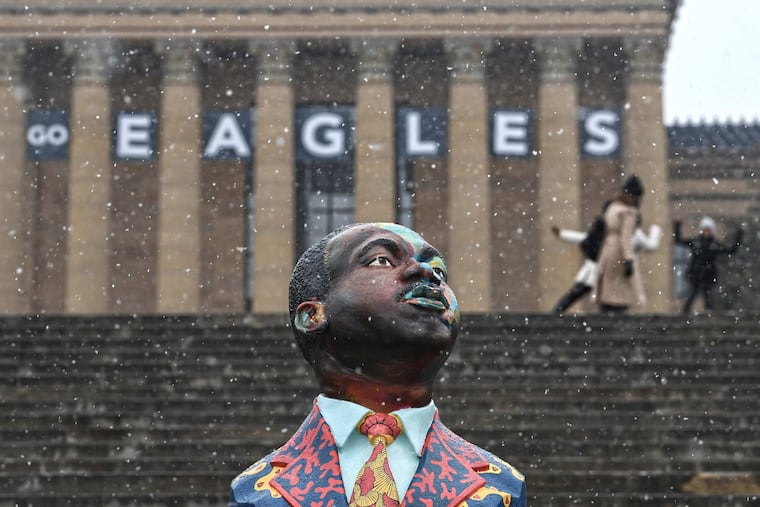It will take more than volunteerism on MLK Day to achieve racial justice in Philadelphia | Editorial
In the half century since the assassination of Dr. King, black Philadelphians have seen many setbacks that volunteerism won't change.

Civil rights leader the Rev. Dr. Martin Luther King Jr. is commemorated every year by the MLK Day of Service: Service to communities through volunteerism and homilies to the ideals of racial equity King fought for. Every year, politicians and other civic leaders tell the story of an America that has made immense progress on racial justice. Their accounts of the transition of America from slavery to Jim Crow to electing a black president are peppered with Dr. King’s quotes about racial harmony.
Both the story of Dr. King and the story of racial progress in America are more complicated than whether, as King dreamed, “little black boys and black girls will be able to join hands with little white boys and white girls as sisters and brothers.” Racial injustice is rooted in policies and practices that live to this day on every level of government — and that can not simply be fixed by well-intentioned volunteers.
An observer of Philadelphia city government could conclude that since the assassination of Dr. King in 1968, political power in the predominantly black and Hispanic city has shifted away from a white hegemony. In 1968, 14 of the 17 Philadelphia City Council members were white and only three were black. In 2020, Philadelphia has 10 black Council members, two Asian members, one Hispanic, and only four white. Philadelphia had black mayors, black police commissioners, a black district attorney, black sheriffs, and black city commissioners.
But merely counting diversity in government does not tell the full story of racial inequality. In the half-century since the assassination of Dr. King, black Americans have seen many setbacks. That plays out in Philadelphia on a grand scale.
» READ MORE: Forget the notion of MLK as ‘Dreamer,' say activists. He was a radical, whose rhetoric is used today.
According to a 2017 report by the Center City District and the Central Philadelphia Development Corporation, the poverty rate of predominantly black and Hispanic neighborhoods in West, Southwest, and North Philadelphia increased — by up to 29 percentage points between 1970 and 2015. An analysis of the Vera Institute of Justice found that the jail admission rate for Philadelphians has tripled over the same time period. The 2010 Census revealed that Philadelphia is the sixth most racially segregated city among the cities with the largest black populations. A recent analysis by the Washington Post of racial segregation of school districts found that Philadelphia’s public schools are not integrated.
None of these inequities happened by mistake. Restrictive covenants, housing and lending discrimination, criminal justice policies that target communities of color, privatization of education, and disinvestment all robbed black Philadelphians — and the city itself — of their wealth.
» READ MORE: Robbing Philly of its wealth | Editorial
Dr. King’s call for racial harmony was also rooted in criticism of policies that benefit the greed of the rich, racist practices that produce inequity, and American involvement in wars. All of these barriers to justice are as alive today as they were when Dr. King was assassinated — and none of them will be taken down by volunteering alone. It took a lot of power and resources to generate racial inequality, and it will take an investment in a similar magnitude but the opposite direction to deliver on the promise of racial justice.